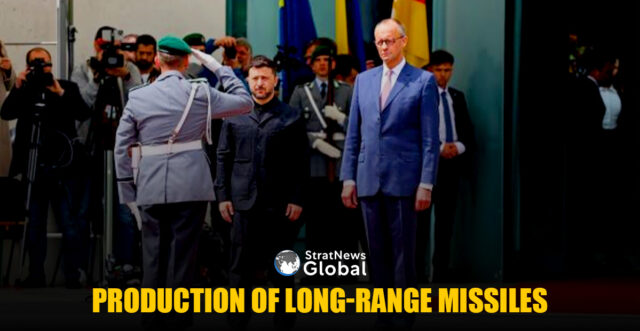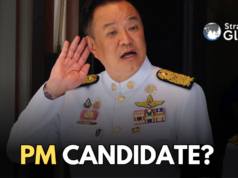German Chancellor Friedrich Merz announced on Wednesday that Germany and Ukraine intend to work together on the industrial production of long-range missiles. He also reaffirmed Germany’s commitment to increasing pressure on Russia in response to its ongoing invasion of Ukraine.
Speaking during a visit of Ukrainian President Volodymyr Zelenskyy to Berlin, Merz said his government would not impose any range limits on the missiles which could be produced in Ukraine and Germany.
“We want to enable long-range weapons, we also want to enable joint production, and we will not speak about details publicly but will intensify cooperation,” he said in a joint news conference with Zelenskyy.
Zelenskyy said the two leaders had agreed to cooperate in production in Ukraine of weapons, including drones. Government officials had signed agreements on the construction and development of production facilities, he said.
“These new projects already exist,” he said. “We just want them to be in the amount that we need.”
Zelenskyy’s visit to Germany comes after Ukrainian and Russian officials met this month for face-to-face negotiations, under pressure from U.S. President Donald Trump to end the war.
The talks failed however to produce a ceasefire agreement and Russia unleashed three nights of massive Russian aerial attacks on Ukraine over the weekend. Moscow has also gathered 50,000 troops near Ukraine’s northern Sumy region, Zelenskyy told reporters.
The military moves do not “speak the language of peace”, Merz said.
“This is a slap in the face for all those who are struggling for a ceasefire, in Ukraine itself, but also in Europe and the USA.” he said.
Russia has accused Ukraine of significantly increasing drone and missile attacks on Russian territory over the past week using Western-supplied munitions.
Pressure On Russia
Merz said Europe would continue to increase pressure on Russia to engage in peace talks to end Europe’s deadliest conflict since World War Two – including ensuring that the Nord Stream 2 pipeline could not go into operation.
Russia’s conditions for ending the war in Ukraine include a demand that Western leaders pledge in writing to stop enlarging NATO eastwards, Russian sources said.
Zelenskyy said some partners had signaled their support for Ukraine joining the upcoming NATO summit.
“If Ukraine does not attend the summit, it will be a victory of Putin not over Ukraine, but over NATO,” he said.
With Trump signalling wavering support for Ukraine in recent months, Germany could play an increasingly important role as Ukraine’s biggest military and financial backer after the United States.
Merz, a conservative who took office this month, has vowed to take more of a leadership role in ensuring support for Ukraine than his Social Democrat predecessor Olaf Scholz.
He visited Ukraine with other European leaders within days of becoming chancellor and his endorsement of Ukraine’s right to launch long-range missile strikes into Russian territory has contrasted with Scholz’s cautious rhetoric on the issue.
His government however has said it would no longer publicly detail what arms it is sending Ukraine, preferring a stance of “strategic ambiguity.”
(With inputs from Reuters)





